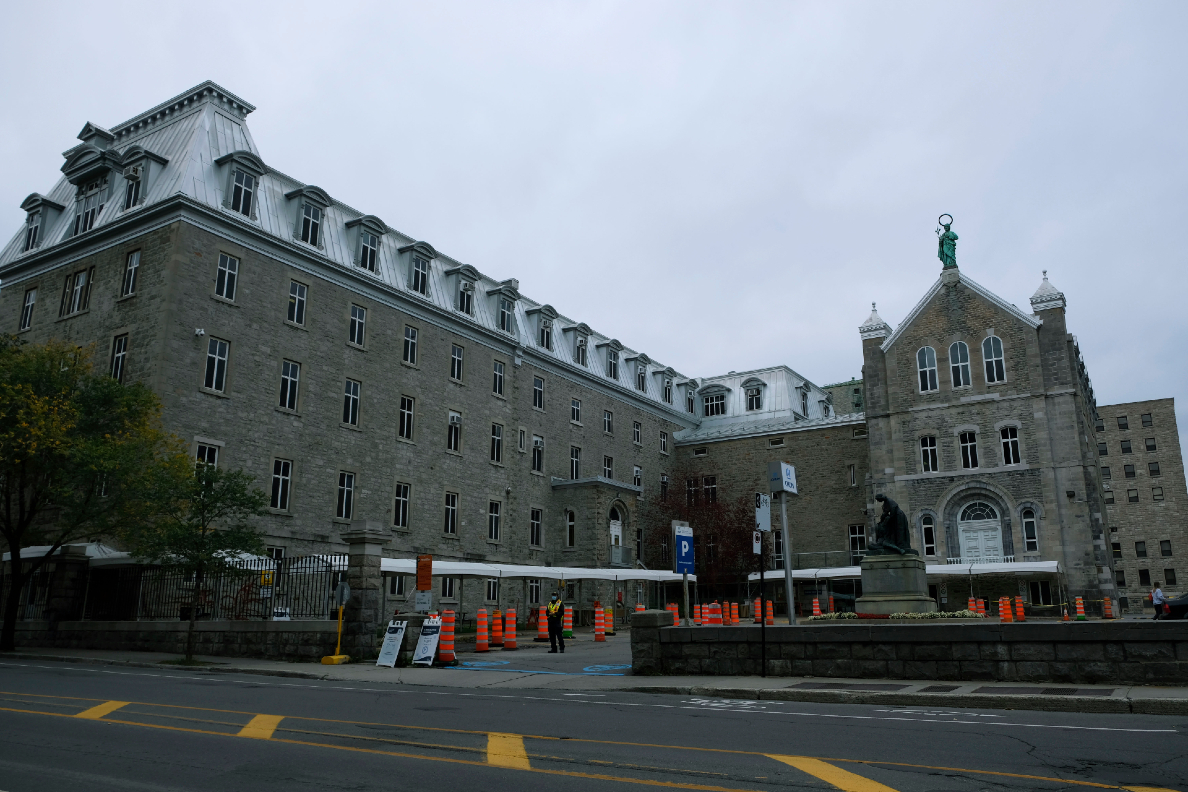While the race for a COVID-19 vaccine continues, scientists around the world are exploring the possibility of repurposing existing drugs to effectively treat COVID-19 patients. Recently, researchers have seen a number of breakthroughs. One of these successes is dexamethasone, a corticosteroid hormone with anti-inflammatory and immunosuppressive properties.
The conclusions of one research group, published in The New England Journal of Medicine, suggested that orally or intravenously administered dexamethasone was effective in treating severe cases of COVID-19, particularly improving survival in very ill patients requiring supplemental oxygen.
Following the success of dexamethasone, in mid September, a team of researchers from the Research Institute of the McGill University Health Centre (RI-MUHC) began to examine whether other drugs within the corticosteroid family could treat milder cases of COVID-19.
Nicole Ezer, assistant professor in McGill’s Faculty of Medicine and lead investigator of the new MUHC study, drew inspiration from previous dexamethasone trials. She wrote to The McGill Tribune about the promises of ciclesonide in COVID-19 treatment.
“Ciclesonide is a type of inhaled steroid and nasal steroid, and it is currently used for asthma and allergic rhinitis,” Ezer wrote.
Typically, steroids like dexamethasone and ciclesonide are used to treat inflammatory conditions such as allergic disorders, skin conditions, and other illnesses that affect the respiratory tract. COVID-19 shares some of the adverse effects of other inflammatory diseases, making these steroids a viable option for treating respiratory symptoms that arise from the virus.
There are multiple advantages to using ciclesonide as a treatment for COVID-19. The side effects of ciclesonide are relatively rare and mild: The most common side adverse effect is oral thrush, also known as candidiasis, which only occurs in one per cent of patients. Candidiasis occurs when candida, a mouth fungus, grows and causes white blotches on the tongue and throat as a result of corticosteroid exposure.
Another advantage of ciclesonide is that there is already evidence of its efficacy. Studies have shown that the drug decreases damage to lung tissue by inhibiting the replication of SARS-Cov-2, the virus that causes COVID-19. Even in moderate cases of COVID-19, lung damage can cause breathing difficulty and lead to inflammation in the respiratory tract. Inhaled drugs like ciclesonide act directly on the nose, airways, and lungs, the primary sites for the viral replication of SARS-Cov-2.
Ezer and her colleagues are keen to further explore the treatment possibilities of ciclesonide through a randomized trial. So far, the trial has been unusual in that its design is both remote and “touchless.”
“This is a very pragmatic randomized control trial,” Ezer wrote. “[It is pragmatic] in that patients are at home, have medications sent to their home by courier, and answer questions online without visiting the hospital.”
Participants must register on an online platform where doctors can then follow up with them. Eligible participants are randomly assigned to a control or experimental group. As in any randomized trial, only a select number of participants will receive ciclesonide, while the rest receives a placebo.
The study is currently in the recruitment stage. Participants need to be over the age of 18 and must have been recently diagnosed with COVID-19. They must also exhibit symptoms such as fever and shortness of breath within five days of enrolment.
For now, the study is geographically limited to Quebec. However, the team hopes to expand the study.
“We’re working with [officials in] Alberta and British Columbia to offer [ciclesonide] to other provinces as well,” Ezer said in an interview with the Tribune.
The work of Ezer and her colleagues is crucial to treating COVID-19 cases in the immediate future, as widespread vaccines might not be available until mid-2021.
“Vaccines will not be the only solution for COVID-19,” Ezer wrote. “Vaccines may not have 100 [per cent] efficacy, so we will still need treatment options for those who do get COVID. At a population level, we need inexpensive treatments for mild patients that are well-tolerated.”
More information regarding the study, eligibility criteria, and registration information can be found on the study’s official website.










I used ciclesonide (Alvesco 160mcg 2x/day) during my first covid infection. It seemed to help — either that, or the infection cleared on its own within three days of starting the drug. Now, however, it seems like I may either be reinfected or have a flare. I wonder if ciclesonide will continue to help. I’ve read about mutations of the virus where it bypasses the efficacy of the inhaled steroid. Another thing to consider is if the drug is effective on various forms of the virus (i.e, different strains).
ARS – were you tested positive during your first infection? and retested again to establish having cleared? Unlike vaccines I don’t think an inhaled steroid will be impacted by mutations.
Hi, I wish you came out of the second infection just fine.
I appreciate it if you update me on the outcome. If ciclesonide helped again.
Regards
David Luna